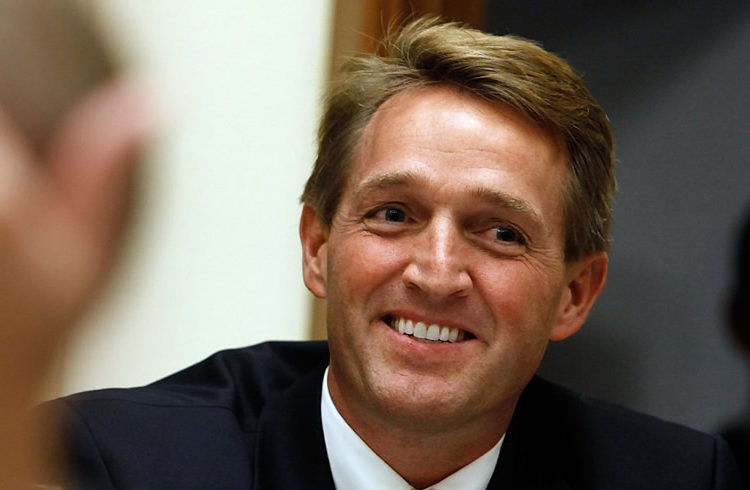Cuban Foreign Minister Bruno Rodríguez met on Saturday, January 6, in Havana with U.S. Republican Senator Jeff Flake, one of the principal promoters of bilateral rapprochement in the U.S. Congress, the island’s Foreign Ministry reported.
The Rodríguez and Flake meeting took place in the midst of a renewed climate of tension in U.S.-Cuba relations due to the sudden change in the U.S. government’s policy boosted by the Donald Trump administration.
Also present at the meeting was Josefina Vidal, the Cuban Foreign Ministry’s general director for the United States, one of the most visible faces in the “thaw” between both countries, which reestablished diplomatic relations in July 2015.
The Foreign Ministry recalls, in a note published in the Cubaminrex official website, that the Republican senator for the State of Arizona has traveled to the island on numerous occasions and forms part of a growing bipartisan group in the United States’ Capitol Hill who are defending the bilateral rapprochement.
“Flake has especially been the principal promoter of a bill that proposes the elimination of the travel to Cuba restrictions for Americans, which currently has the backing of another 54 senators, that is to say, more than half of the (U.S.) Senate members,” the note highlights.
Johana Tablada, the Cuban Foreign Ministry’s deputy director for the United States, and ambassador Carlos Fernández de Cossío were also present at the meeting.
The Freedom to Travel to Cuba Bill was presented for the first time in 2015 by Republican Flake and Democrat Senator Patrick Leahy, who again presented it to Congress in June 2017.
In June 2017, the day in which Trump’s measures to limit the trips to Cuba were made public, Senator Flake said that any change in policy that decreases Americans’ capacity to freely travel to Cuba is not in the best interests of the United States and the Cuban people. He went on to say that it was time for the Senate’s leadership to finally allow a vote on his bipartisan bill to completely lift these archaic restrictions that do not exist for Americans’ traveling to any other country in the world, adding that the bill has a total of 55 cosponsors and that he was convinced that it would be passed in the Senate with more than 70 votes.
Both senators traveled with former President Barack Obama on his historic visit to Havana in March 2016.
Flake and Leahy also played an important role in the release of U.S. contractor Alan Gross, arrested in Cuba charged with espionage.
Relations between Cuba and the United States improved notably after the “thaw” announced in December 2014 by then U.S. President Barack Obama and his Cuban counterpart Raúl Castro.
The announcement led to a rapprochement which had relevant moments like the resumption of diplomatic ties, the reopening of embassies, Obama’s visit and the reestablishment of direct commercial flights between the two countries.
Both nations’ governments agreed to collaborate in several areas, among them education, health, culture, the struggle against drug trafficking and the migration topics.
However, Trump’s arrival to the White House in 2017 bogged down the new stage of “normalization” of relations and again strained bilateral ties after the change of policy ordered by Trump against the rapprochement between the two countries.
EFE / OnCuba










